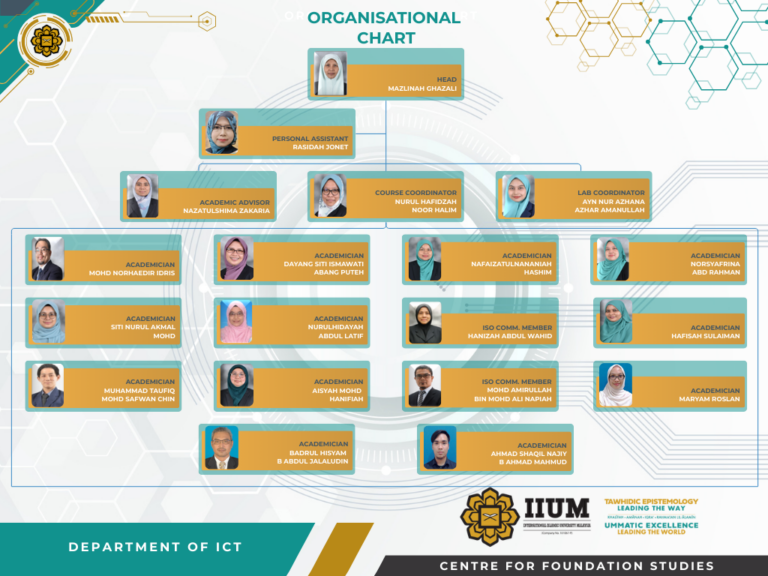Home » Department of Information & Communications Technology (ICT)
About Us
- Foundation in Computer Science
- ICTF 0523 – Programming 1
- ICTF 0534 – Programming 2
- ICTF 0544 – Introduction to Database
- ICTF 0554 – Introduction to Web Technologies
- ICTF 0513 – Ethical Digital Literacy
Meet us @ICT
Curriculum Structure
Curriculum Structure
Course Synopsis
» Course Title: Ethical Digital Literacy
Course Code : ICTF 0513
Credit Value : 3
Course Synopsis : Ethical Digital Literacy is a comprehensive course designed to equip students with essential skills and knowledge required to navigate the 21st century confidently and ethically. In this course, participants will explore the fundamental concepts of exploring information, searching tools, and practice skills associated with digital literacy, enabling them to engage with technology effectively and responsibly in various aspects of their personal and professional lives without neglecting the ethics. By the end of this course, students will have developed a strong foundation in digital literacy, empowering them to navigate the digital landscape confidently, responsibly, and ethically, while leveraging digital tools for personal and professional growth.
» Course Title : Programming 1
Course Code : ICTF 0523
Credit Value : 3
Course Synopsis : This course provides the basics of structured programming using the C++ language. It begins with an introduction to the program development life cycle to show how to build a program to solve simple to moderate real-world problems. Students have the opportunity to learn about the structure of C++ programs, how to create and use functions in C++ programs, and how to manipulate and use selections and repetitions control structures. This course enables students to build a solid foundation of fundamental concepts and a broader conceptual understanding of programming-related courses in ICT and Physical Sciences through lectures and lab exercises.
» Course Title : Programming 2
Course Code : ICTF 0534
Credit Value : 4
Course Synopsis : This course is a continuation of the ICTF 0523 course. Students have the opportunity to learn how to create and use recursion, arrays, strings, pointers, and structures in C++ programs and how to import and export an input/output file. This course enables students to build a solid foundation of fundamental concepts as well as a broader conceptual understanding of programming-related courses in the fields of ICT through lectures and lab exercises.
» Course Title : Introduction to Database
Course Code : ICTF 0544
Credit Value : 4
Course Synopsis : This course introduces the concept of database systems and the design of the relational database model and the entity-relationship model. Students have the opportunity to learn the concept of database normalization, SQL commands, database planning, design, and database administration. This course enables students to build a strong foundation of basic concepts as well as a broader conceptual understanding of databases through lectures and lab exercises.
» Course Title: Introduction to Web Technologies
Course Code : ICTF 0554
Credit Value : 4
Course Synopsis : This course aims to expose basic web programming skills to students and focuses on client-side scripting. Students have the opportunity to learn the introduction of web page design by using HTML and CSS. It continues with web page validation and interaction with JavaScript. This course enables students to learn about the current standards of client-side frameworks such as API, AJAX and JSON through lecturers, discussion, and practical exercises.
Centre for Foundation Studies
International Islamic University Malaysia (IIUM)
Administration Building,
26300 Gambang,
Pahang Darul Makmur, Malaysia
Phone: +609 518 3400 (Operator)
Office of the Deputy Dean Academic & Internationalisation (ODDAI)
Phone: +609 518 3439
Finance Unit
Phone: +609 518 3430
Any matters related to CFS IIUM, please address your concern
to: cfsofficial@iium.edu.my
Sitemap


